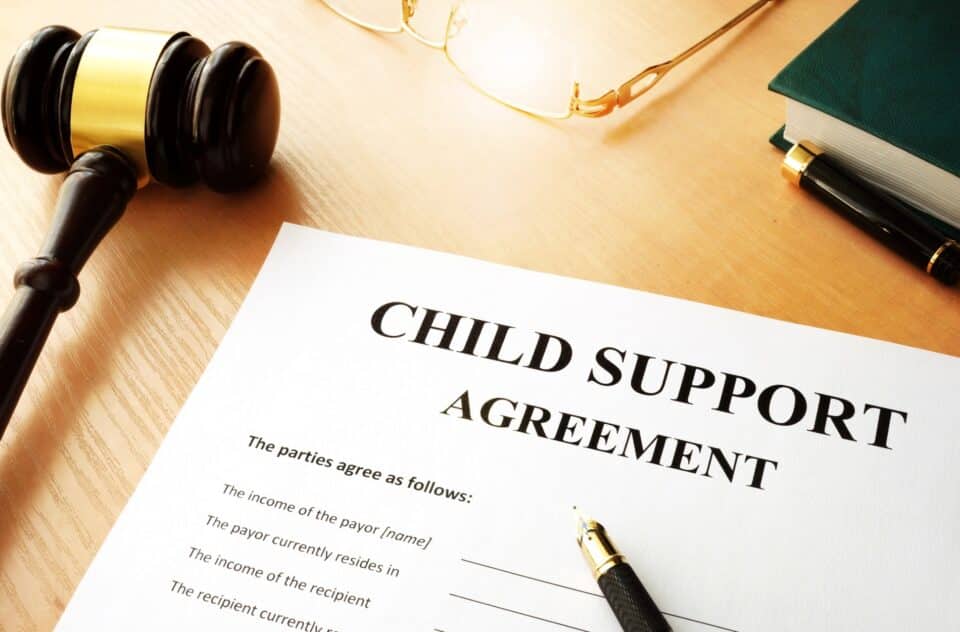Going through family court can feel overwhelming, especially if you’ve never dealt with it before. Whether it’s about parenting time, support, or other legal concerns, the process can seem complex from the start. Many people in Tampa enter the legal system not knowing what steps to expect or what their rights are. It helps to have a basic understanding of how family court works before you’re in the middle of it.
Tampa’s family court system handles a wide range of family law matters. From the first step of filing paperwork to appearing in front of a judge, each stage includes specific rules and expectations. Knowing just a little about the process can ease stress and reduce confusion. If you’re facing a situation involving divorce, custody, or child support, having clear answers to common questions may make the path forward feel a bit more manageable.
What Is Family Court And Why Is It Important?
Family court is a branch of the legal system that focuses on disputes and issues involving family relationships. In Tampa, this includes matters such as divorce, paternity, child custody, parenting plans, child support, alimony, and adoption. Each of these issues can deeply affect families, so the court provides a formal structure for reaching decisions and creating solutions that are legally binding.
Unlike civil or criminal court, family court is focused on making outcomes that place the well-being of children and families first. The judge looks at what arrangement is fair based on the facts presented. For example, if two parents can’t agree on a custody plan, the court will step in and follow Florida law to decide how the child’s time is divided. These decisions are not random. The court listens to both sides, reviews documents, and then works toward an outcome that supports the best interests of everyone involved.
Understanding the court’s role helps clarify what to expect as you go through the process. If you’re unfamiliar with terms like time-sharing or financial affidavit, it’s normal to feel out of your depth. But knowing that the court has a legal duty to manage and resolve these types of family law matters gives you a sense of why everything must be done properly and in the right order. Whether someone is looking to make legal changes or respond to a filing brought against them, family court in Tampa helps ensure structure, consistency, and fairness.
How Do I Start A Case In Family Court?
Beginning a case in family court starts with filing the right documents. Whether you’re filing for divorce, custody, or financial support, the process follows a few basic steps that apply to most family law matters in Tampa. Here’s a general outline of what to expect:
– Identify the right form: Family court uses different forms depending on the issue. For example, you’ll need a Petition for Dissolution of Marriage if you’re getting divorced, or a Petition to Determine Paternity if you’re dealing with a child support situation involving unmarried parents.
– Complete and review your paperwork: Forms must be filled out completely and accurately. Missing information or mistakes can lead to delays or having to refile. It helps to have a second set of eyes review everything before turning it in.
– File with the clerk of court: Once complete, your documents are submitted to the clerk at the family court office. You’ll need to pay a filing fee unless you qualify for a fee waiver.
– Serve the other party: After filing, the person on the other side of the case must be officially notified. This is called service of process and must be done in a legal way the court recognizes.
– Watch for deadlines and court dates: After everything is filed and served, keep track of deadlines and scheduled appearances. Missing a court date can affect your case.
Taking the time to understand this process helps prevent mistakes early on. Even something that seems minor, like forgetting to include a supporting document, can slow things down. Filing a case isn’t just about dropping off paperwork and waiting. It’s a series of steps that require clear communication, timing, and attention to detail.
What Happens During A Family Court Hearing?
Once your case gets scheduled for a hearing, it’s natural to feel nervous. But knowing the flow of a typical family court hearing in Tampa can help ease that feeling. Courtrooms aren’t like what you see on TV. They’re focused settings where the judge listens to both sides, reviews the evidence, and makes decisions based on the law.
When a hearing starts, the judge may ask both parties to confirm their names and roles. Each side will then have a chance to explain their view. Your attorney, if you have one, does most of the speaking, but you might be asked to answer a few questions. Throughout the hearing, the judge is mostly listening, taking notes, and asking for clarifications when needed.
Documents are a big part of the process. You may need to show things like:
– Income or pay stubs
– Childcare or school records
– Text messages, emails, or other communication logs
– Property or asset information
Court hearings can be short or take up most of the day depending on the case. Short hearings, sometimes called status conferences, are used to check on progress or set future dates. Final hearings or trials are for resolving bigger disputes, like deciding custody or dividing property. Staying calm, organized, and respectful in court helps make your side clear. The judge notices people who come prepared and stay focused on their case.
How Are Decisions Made In Family Court?
In family court, the judge is the final decision-maker unless both sides can settle before the hearing. The judge looks at the facts presented, the law in Florida, and how each option might affect the people involved, especially any children. Every decision aims to balance fairness with legal boundaries.
The court considers different sets of factors for each type of issue. For example:
– In custody cases, the judge looks at things like the child’s relationship with each parent, health, safety, and stability.
– In support cases, income and expenses on both sides matter. The court checks for honesty and full disclosure in financial details.
– In property division, the court looks at what is considered marital property versus personal or separate property.
Sometimes, people assume the parent who earns more or has a larger home will automatically get full-time custody or a bigger share. That’s not how it works. Florida law guides the court to look at what’s fair, not just financially, but emotionally and practically too.
It’s important to share accurate facts and stay respectful during the process. Judges see many cases and pick up quickly when someone is being dishonest or trying to create conflict. It’s not about winning points. It’s about showing why your request makes sense under the law.
Common Questions People Have About Family Court
Even after learning the legal steps, many people still have loads of questions about family court. Here are a few of the ones that come up a lot:
– How long will my case take?
Each case is different. Some wrap up in a few months, while others take longer because of delays, disputes, or needed documents.
– Can I appeal a decision I don’t agree with?
Yes, but appeals must be based on legal errors, not just disagreement. A lawyer can help figure out if an appeal makes sense.
– What happens if the other person doesn’t follow the court’s orders?
You can go back to court and file a motion to enforce the order. The court may take steps if it finds someone didn’t follow through.
– Do I need to attend all hearings?
Usually yes, unless the judge excuses you in advance. Missing a hearing can hurt your case or lead to decisions being made without you.
– Is everything I say in court on the record?
Yes. People often forget that what’s said in court can be part of the official record. Be mindful, calm, and thoughtful when speaking.
Getting answers early can really help. It’s better to ask questions upfront than guess your way through and face problems later.
Understanding Your Role and Rights
No matter what kind of family law matter you’re facing, staying informed makes a difference. It’s not just the lawyer’s job to know the case. As the person directly involved, you should understand the basic terms, timelines, and expectations. This will allow you to make clear choices at every stage, from filing to final hearing.
Your role goes beyond just showing up. You may need to collect records, communicate with other parties, or follow temporary orders. Taking notes and keeping paperwork in one place helps a lot. So does showing up on time, keeping court dates organized, and staying open to possible agreements. A client who understands their case, knows their goals, and is willing to work through the process often gets better results. You’re part of the process every step of the way.
Navigating Family Court Procedures in Tampa with Confidence
Finding your footing in Tampa’s family court system may not be easy, especially with all the paperwork, deadlines, and rules involved. But it’s possible to move through it with clarity when you know what to expect from each part of the process. From the first petition to the last court order, you have the right to ask questions, protect your interests, and make sure your voice is heard.
Family law matters can shape many parts of your life. Whether you’re working through a divorce or figuring out a parenting plan, knowing your role gives you a real sense of control. With the right support and knowledge, your next steps will feel less confusing and more like progress.
If you’re facing changes at home and aren’t sure where to begin, Covenant Family Law is here to support you. Our team takes the time to understand your circumstances and offers guidance every step of the way. Learn how we can help with family law matters in a way that puts your family’s needs first.




